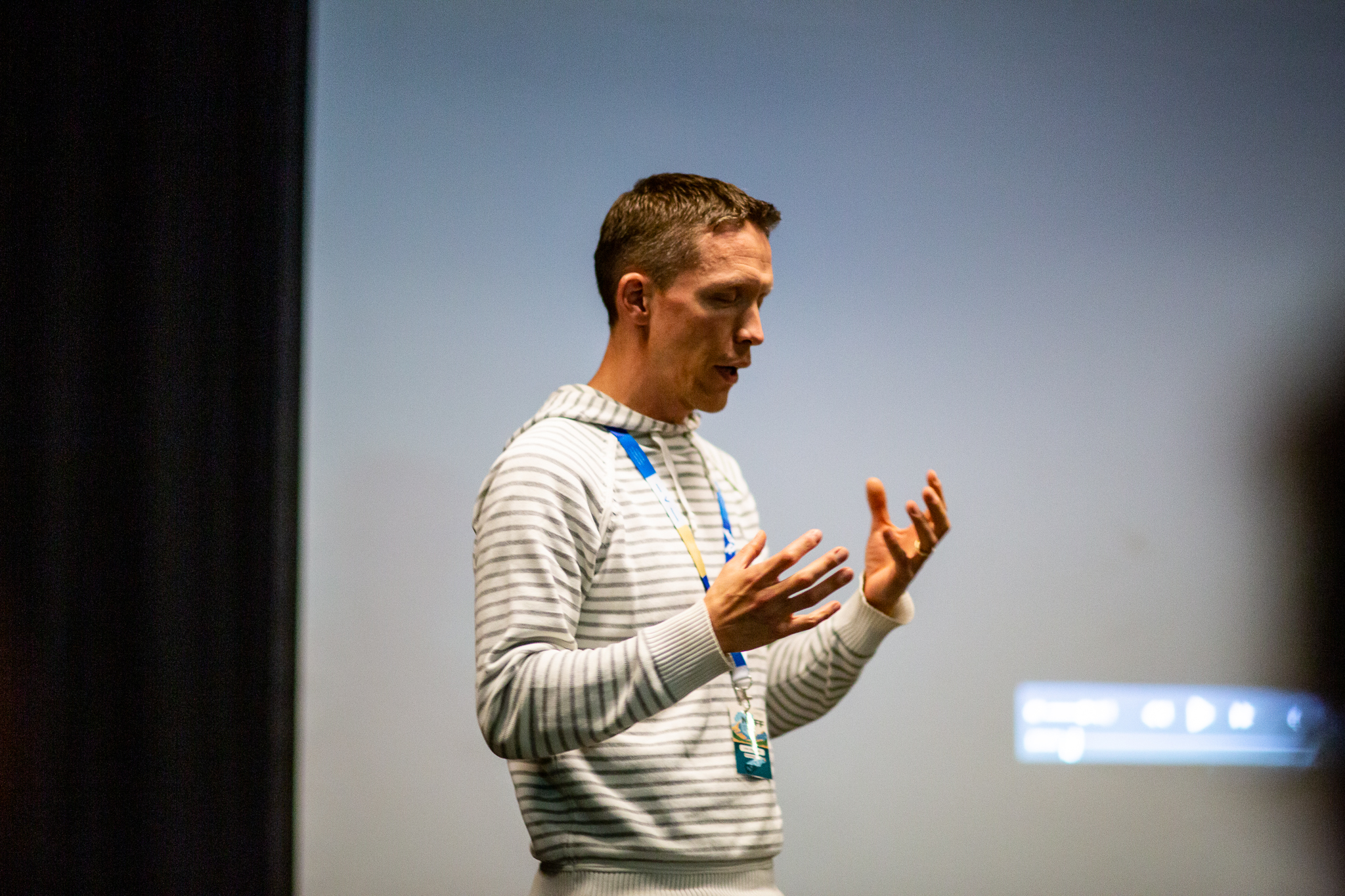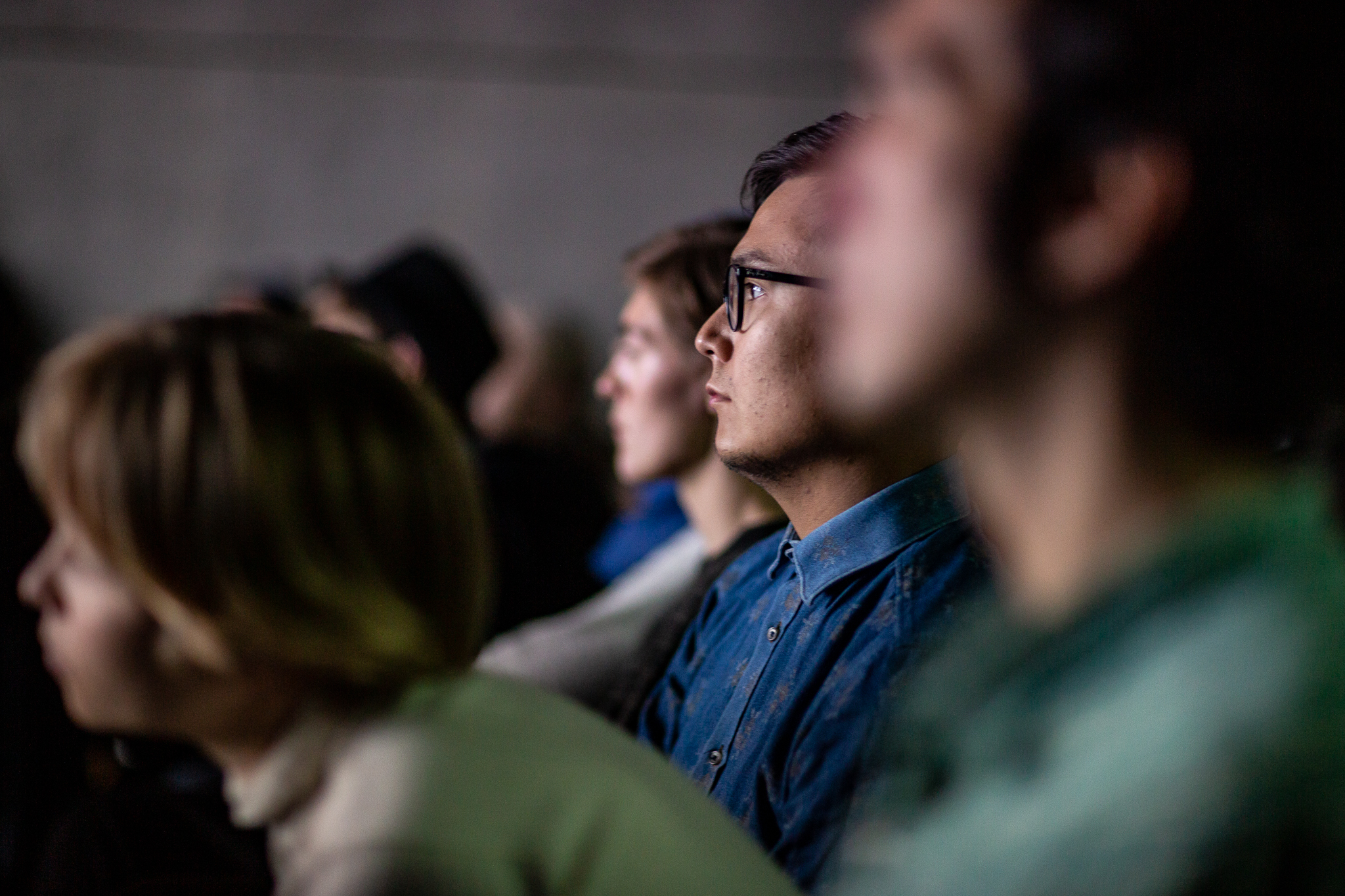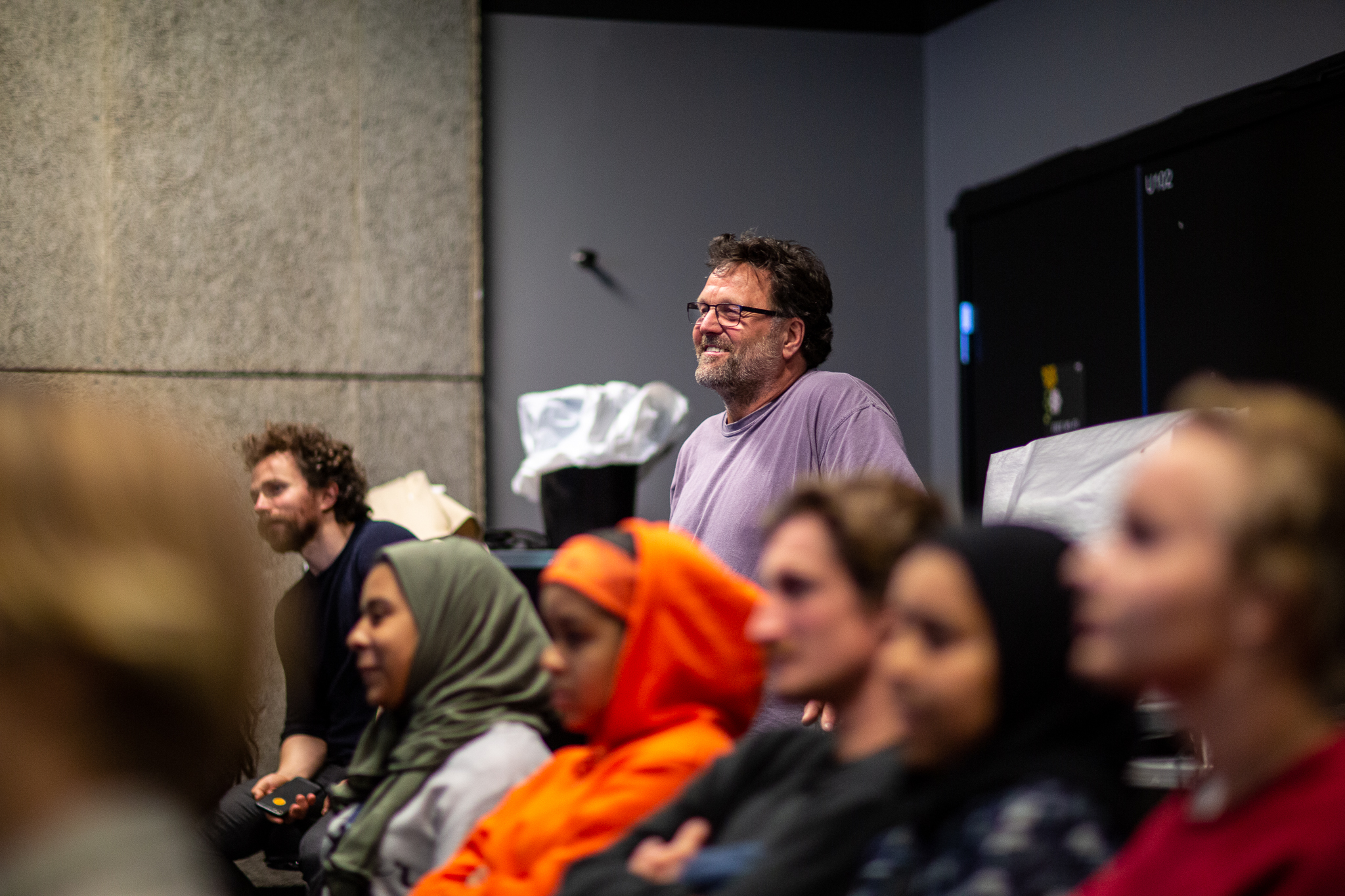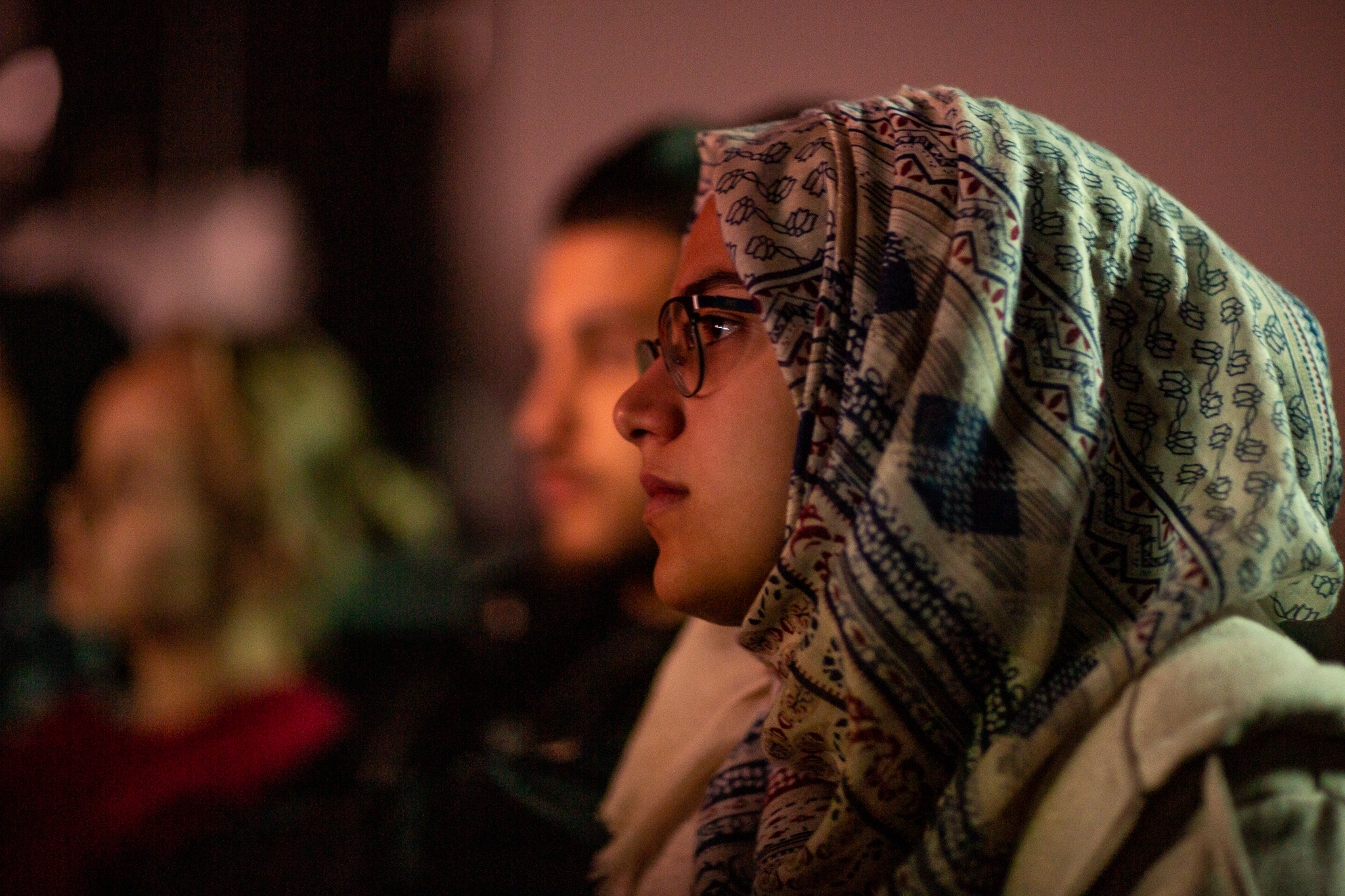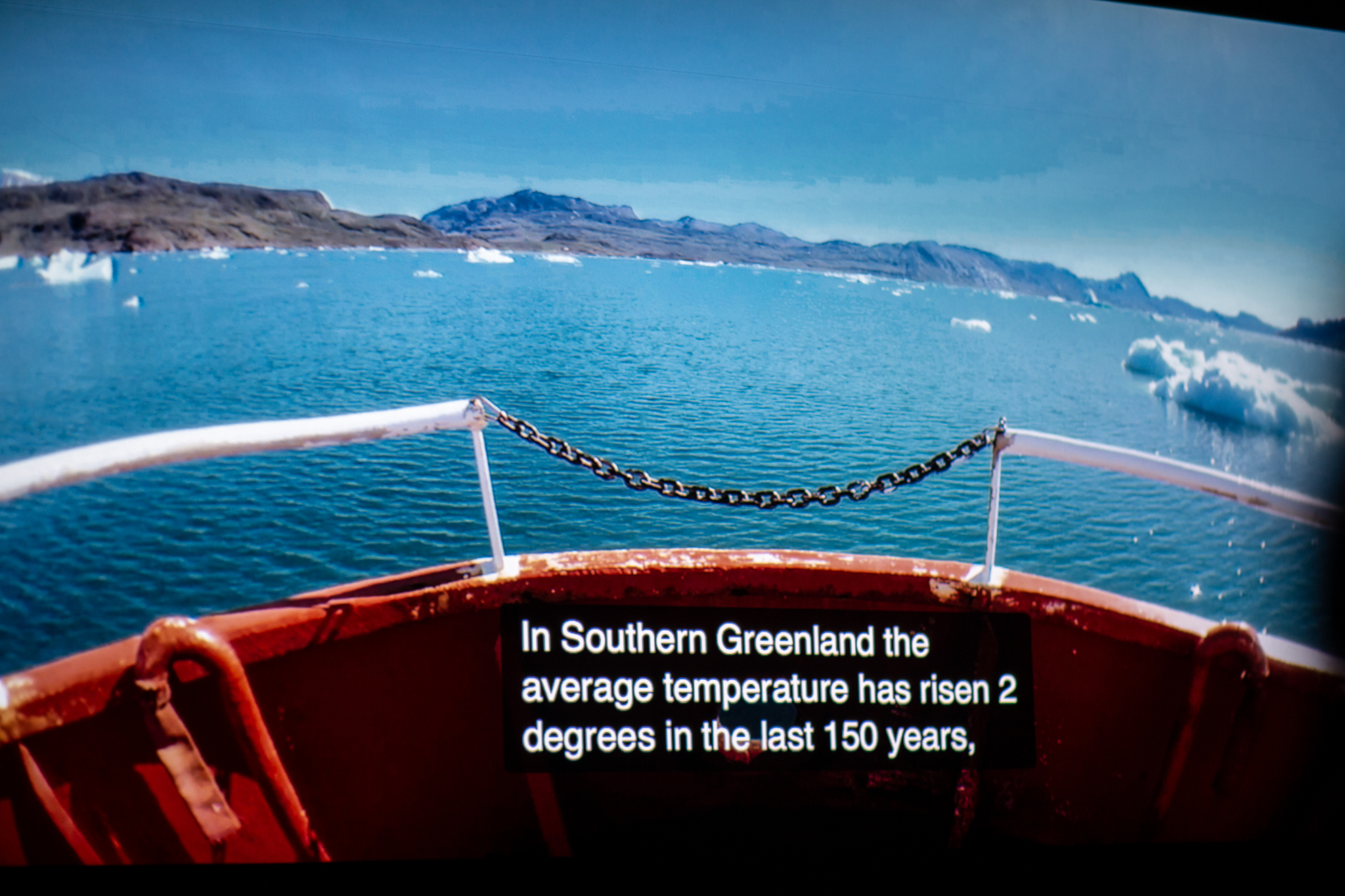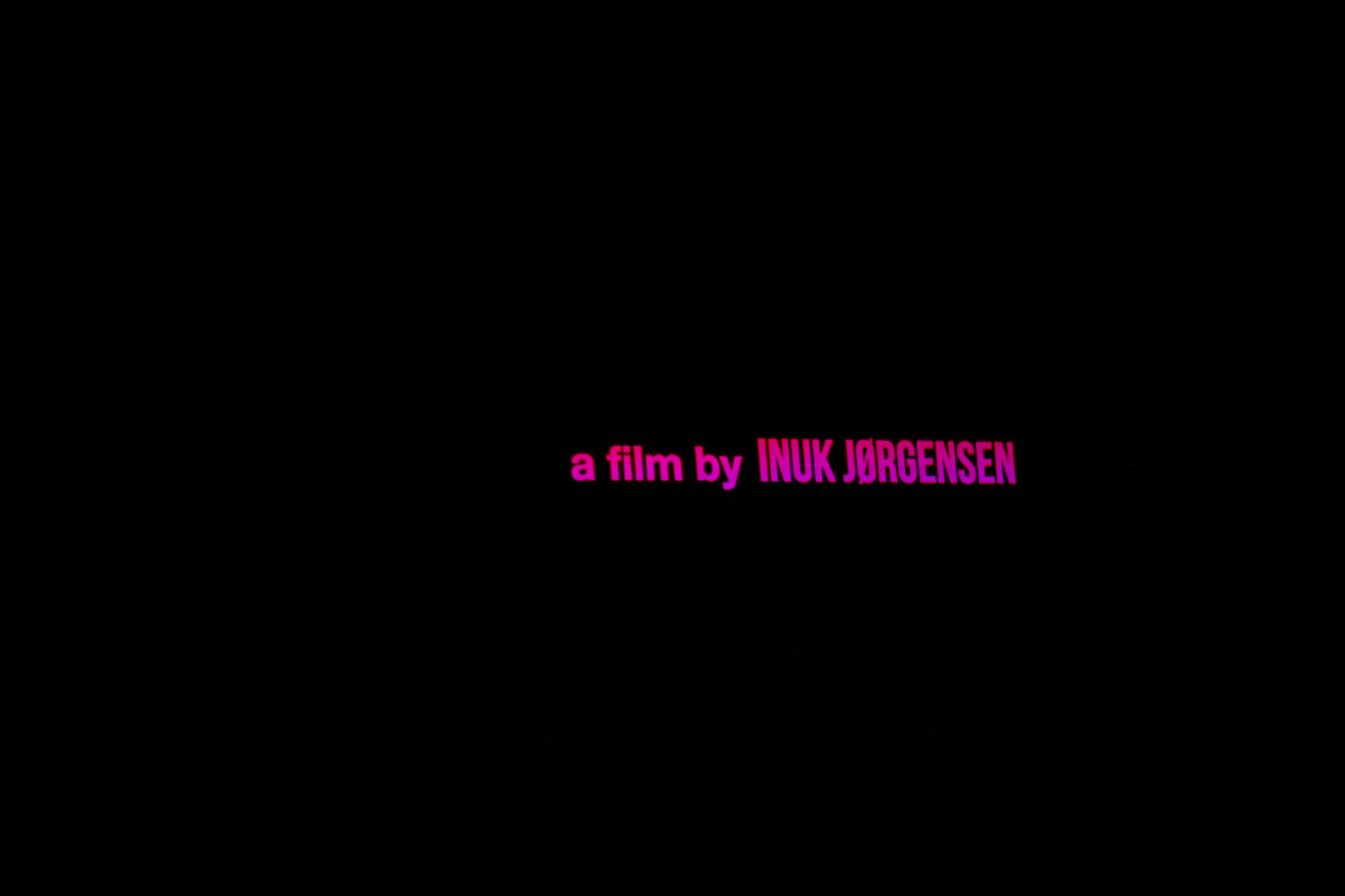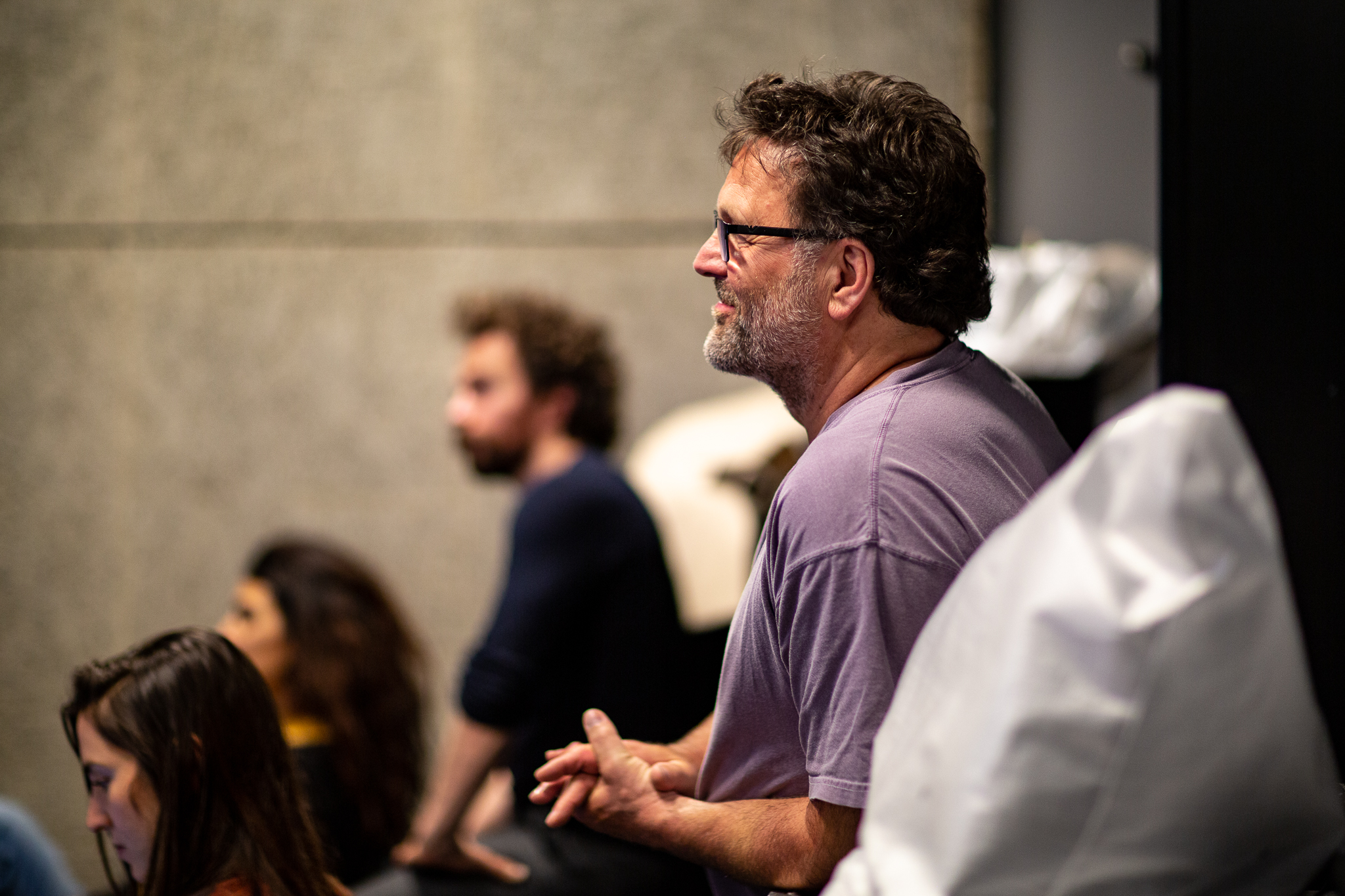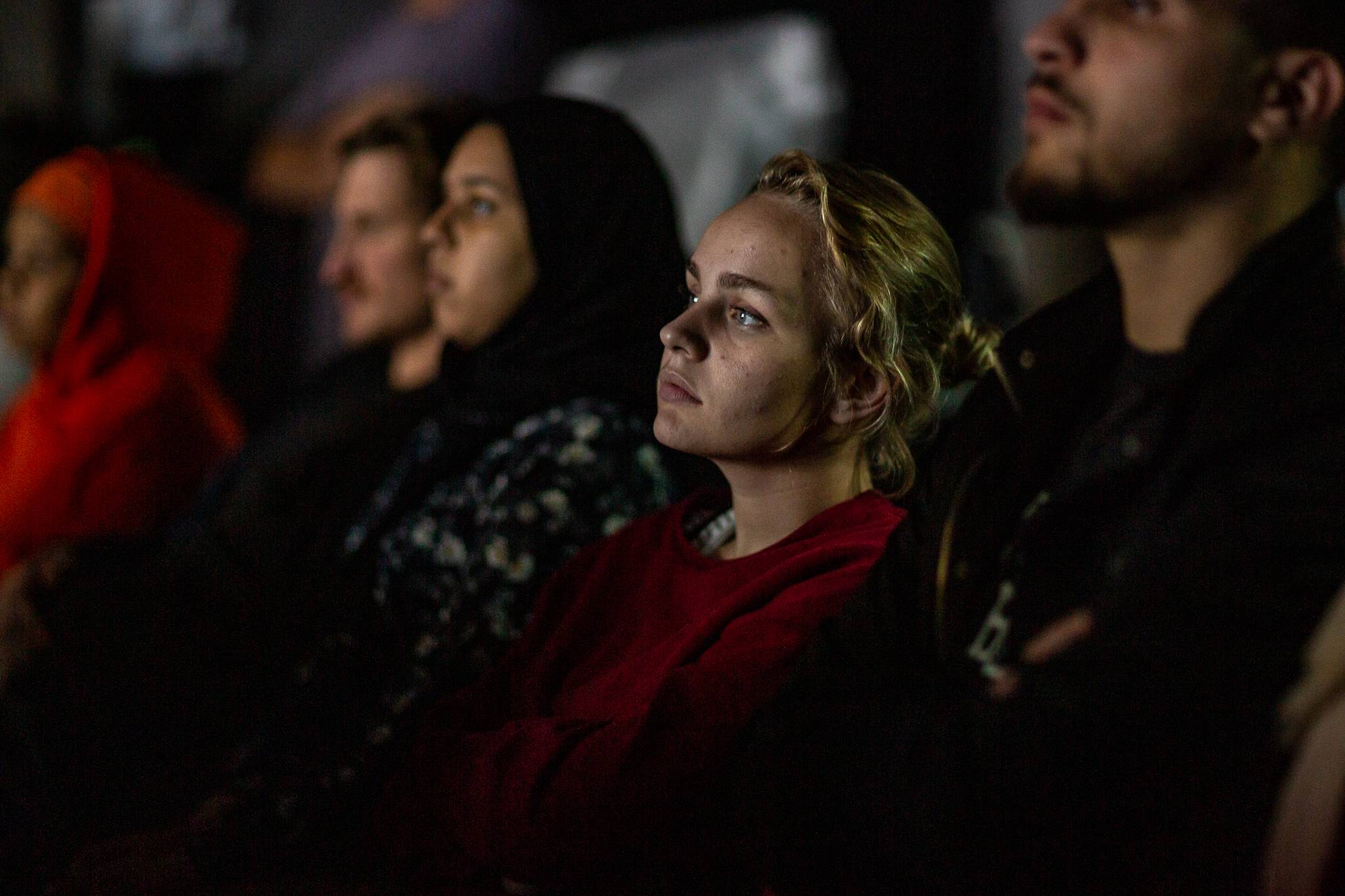Folk på Tvibit - Inuk Jørgensen talks about film & Greenland
Norsk intro under
Alessandro Belleli, Tvibit 2019
The following is an interview with Inuk Jørgensen, workshop leader at NUFF 2019 and leader of the Film Department of Nordiska Folkhogskolan. This interview is part of a longer dialogue and cooperation between Tromsø-NUUK, NUFF & Tvibit and the Greenlandic film environment.
You find the earlier blogg posts on focus Greenland and the Tromsø - NUFF & Tvibit cooperation with NUUK - Filmverkstedet here:
the visit of NUFF and Tvibit to NUUK for the opening of Filmverkstedet i NUUK
the interview with Aka Hansen, leader of Filmverkstedet
Det følgende er et intervju med Inuk Jørgensen, workshop-leder ved NUFF 2019 og leder for Filmavdelingen i Nordiska Folkhogskolan. Dette intervjuet er del av en lengre dialog og samarbeid mellom Tromsø-NUUK, NUFF & Tvibit og det grønlandske filmmiljøet.
Du finner de tidligere blogg-innleggene med fokus på Grønland og Tromsø - NUFF & Tvibit-samarbeidet med NUUK - Filmverkstedet her:
besøket av NUFF og Tvibit til NUUK for åpningen av Filmverkstedet i NUUK
intervjuet med Aka Hansen, leder for Filmverkstedet
Inuk Jørgensen
“The Greenlandic film industry has been around for 10 years, it is important that a lot of work produced in Greenland were made for a Greenlandic audience, we need that; but I think it is also very important that we look at the world internationally, we need to get them out there. They don’t need to be big successes, but I think the world needs to hear and see our stories.
When Greenland started making more short films and the feature films, you started to see how Greenlandic people are telling stories related to the culture of Greenland: in a beautiful way they connect the Inuit beliefs with how the world is now and it is a totally different way of telling a story.”
1) How was your experience as a workshop leader at NUFF?
I thought it was a great opportunity for the young participants to experience a bit what is like to make a film. I really like that there was a lot of preparation before shooting the films, like hiring the actors, all of the equipment was in one place, it was important to have this in order to have success. What we first focused on within our group (but I am sure also the other group) was at first to get to know each other and then to come up with ideas. We didn’t have to worry about location scouting and all the other practical things that you normally also have to do. I thought it was a good setup for having a successful week, all the groups had a good time and it is because of the little things, I think the foundation to have a successful week was already there and therefore it was really exciting.
2) What are you bringing with you from this experience with the festival and how do you wish to develop this further?
Since I teach film on a daily basis, I try to setup my own course a little bit in the same way. Also the idea that you shouldn’t be told what to do but it should grow out of the group chemistry, out of what they want to do. From my own experience, you really do learn by doing, I mean you really need to get your fingers dirty in order to get things growing and beautiful. I think to cooperate is very important if you make films in any level, working in a project with people that is like-minded is the best experience, I really think so.
3) How do you think was the experience from the participants of Greenland?
I think they really had a good time. Greenland is isolated, the population is so spread out and it is so relatively small, the people from the film community work a lot by themselves, it is really important for young people to go out and experience the world. I think they had a wonderful time coming to Tromsø and participating to NUFF in the different film groups: it was important for them to get connected to other people from all around the world and making films. It was a great experience, I hope they are coming home richer and that they will apply what they learned to their daily lives.
4) What was NUFF contribution to the talent development of the young Greenlandic participants?
I think Aka Hansen is a better person to reply this question. Since Greenland is so isolated so it is important for young people from the film community but also from all other communities to go abroad and experience how the world works. Especially if you work in media, film or art, an international view is very important because it is really the way forward. Often you make a film and it can be watched all around the world, I mean everyone can make a film on your telephone, upload it to youtube and have the world as an audience basically. It is very important on every level that you get this idea that the world is bigger than just your little village in Greenland for instance.
5) NUUK and TROMSØ are twin cities, can they be twins in the film world? How do you see this cooperation in the future?
Interesting, when I was walking around Tromsø, I got the feeling that I was in NUUK, it really reminded me how NUUK is. I think some further collaborations between NUFF and The Film Workshop of NUUK would be perfect also because so much is happening in Tromsø, there is TIFF and NUFF and a lot of culture in Tromsø. NUUK is, on a different scale, but also kind of the same for Greenland: the center for culture. I therefore think that some collaboration would be good especially for NUUK but I also believe that the Greenlandic population could bring some interesting views, worldviews to Tromsø: not just in the indigenous views, like you have the Sami, we have the Inuit, but also in the way that we share languages and some history. Almost everyone in Greenland speak a little bit of Danish and that’s not far from Norwegian; there are some cultural connection there, like the history between Greenland and Norway goes back to the time when Norway was part of the Danish Kingdom. Culturally and historically there are therefore some good chances for a good cooperation.
6) What are your thoughts regarding a further future cooperation between Nordiska Folkhøgskolen and NUFF?
We are a Nordic School and we have students from the Nordic countries, I think it is an interesting angle to have some cooperation with NUFF. I mean not just because it is Nordic, I really feel that we share some of the same world views, like we want to help young people in film. In the Nordiska Folkhøgskolen where I am the head of the film department, you give young people a chance to get some experience in film but also to get to know more other people especially from the Nordic countries. We are such a small part of the world and we need to stick together, you see this in professional films: all films that are made in Scandinavia are founded by all three Scandinavian countries in different proportions, I mean that could also really apply to how young people make their films.
I could see a very interesting cooperation between NUFF and us. The school has been here for 70 years, we really do have a strong network, both NUFF and us could benefit from it. But is not just because we are where we are with our connections, we also have a dream of becoming a cultural center for young people, we have a very good photo class, a theatre class, music and so on.
7) How do you see the Greenlandic film environment need today?
From my perspective, even if I don’t live there as such, I think in Greenland we need to be better at supporting Greenlandic films: films made in Greenland by Greenlandic people and we need to make them relevant for an international public. This might sound harsh, but I really think film is such a medium for us Greenlandic people: to be able to express our world views, tell our stories and make them interesting for an international audience is central. The Greenlandic film industry has been around for 10 years, it is important that a lot of work produced in Greenland were made for a Greenlandic audience, we need that; but I think it is also very important that we look at the world internationally, we need to get them out there. They don’t need to be big successes, but I think the world needs to hear and see our stories. I really think so.
8) Independence VS cooperation: how much does GL film world need the rest of the world and how much does it need to go its own way?
It is interesting, making films is expensive, when you reach a certain level you need a lot of funding. To travel around Greenland, just to get to Greenland is going to cost you a lot of money. I think the circumstances are such that we need some kind of cooperation to be able to tell the stories that we really want to tell. It is a fine balance and I know that for example the Danish Film Institute they made a lot of grants for Faroese and Greenlandic film artists to be able to apply for documentary filmmaking and it is very welcome. I mean we really need more money in the film industry but from my point of view some of those grants could be a little lot because I understand the Danish Film Institute need to make money out of the films and if you expect to make money out of a Greenlandic film for a Greenlandic audience, it is bad business. We are only 56000 people living there and not that many people are going to see your film if you make it only for a Greenlandic audience. And I think it comes a bit back to the point I made earlier that we need to have a more of an international point of view to be able to get funding to make films that people around the world are going to want to see.
9) Could you talk about the earlier and dominating film portraits of GL abroad?
A lot of the films that were made in Greenland were meant to be brought back to Denmark so that people in Denmark could see how people in GL were living and how it was there. So it was pretty much a portrait of an outsider coming into a situation and try to portray how was to live there. Slowly more and more films that were produced in Denmark showed also a portrait at a level that it was liked by Greenlandic people too. Therefore it kind of moved from being the outsider depicting something happening in this small culture to an outsider coming and being part of the culture, having success of not having success. When Greenland started making more short films and the feature films, you started to see how Greenlandic people are telling stories related to the culture of Greenland: in a beautiful way they connect the Inuit beliefs with how the world is now and it is a totally different way of telling a story. I mean some of them are definitely relevant for an international audience and that’s great. And it is great to see how films that are produced in Greenland are becoming more and more Greenlandic: both the history and the culture and the language are a part of it.
So instead of being an outsider coming and saying “Ok, how is this interesting back in Denmark? It is instead Greenlandic people making a film and thinking “How can I make this interesting especially in Greenland but also in the rest of the world. How do I show what we want to show?”
10) Is there a place where a true story about Greenland can be told by the common and dialogical perspectives of native Greenlandic filmmaking (internal perspective) and a foreign listening look (external)? Where and how could we find such a place if we shall look for it?
Definitely, we loose the stereotypes and we bring in different perspectives. For the world as it is today, we need to bring in as many perspectives as you can and because Greenland film is still on its infancy I think what we people connected to the film industry need to take it to the next level. We had 10 years making short films, making a feature film every year primarily for ourselves. Now we need to make films that the rest of the world would also want to see.
It is very important for Greenlandic people to portray themselves in a good way, like they want to be portrayed and not just an outsider coming in a few days, filming stuff and then out of the country. We have very good people in Greenland working with everything, like sound, cinematography, directors... One of the things that differentiates a lot of indigenous filmmaking from what you call western filmmaking is that the quota between men and women is much more equal in Greenland for instance, then it is in the rest of the world. As a teacher for me it means that it is an important next step in the world of film: we need to make more women involved in the making films.
11) What is like to be a Greenlandic filmmaker living and teaching film in Sweden?
The place I am in, the Nordic Film School is a very good place for me because I can draw on me being Greenlandic, it is a plus that I am Greenlandic and Danish also, living in Sweden. I think I can really bring something to my work.
I remember when I first got here I was a little of an outsider: outside of Denmark, no one knows of Greenland, but coming here right now it is definitely getting better, it was hard work, it really was but I am in a very good place now and I always loved teaching. From what I can see on the applications that the school is getting I see a lot of people are finding interesting this Nordic way of thinking: for me it never mattered if I was Greenlandic or Danish when I lived in Denmark and I really feel at home in Sweden. I think the mix between the perspectives I can bring and those of my Swedish colleagues is interesting, when we meet making films or teaching films. I feel quite at home even though I am not really at home, it feels interesting, it feels good.
If I can draw a line to what happened to Greenlandic industry, for me it has been very good to be working in films and making short films & stuff both in Sweden and in Denmark because I get so much more out of it then if I just made films in Greenland. It is very important that you make films that the world can see.
12) What place are you in today as a filmmaker and artist? Where do you see your way going to?
All the films that I have made, I made them in my own time, my spare time: I have been involved in teaching films since I got my first job. Everything I have done, I have done it on the side of my job and I think I will continue to do it, because I really like the fact that I don’t have to make money on my films. I am not constrained by making big successes because I don’t have to make money on my next film. I love that my projects are getting bigger and bigger and I get more experience but since I moved to Sweden I agreed on that when I make films they will be made in Greenland.
The next project, I will start filming in GL in two weeks and I really like making films in Greenland so I can teach here, get my money, hoping to do a good job, get my connections. I also really want to make my own films, totally independent. I have a niche in going there to Greenland and making my films, instead of filming here in the forest. That is my background and I want to do that, draw on personal experience, I do and I always wanted that and I think it is a good card to play: that is my ace, that I can use Greenland as a way to make films, so I hopefully will continue doing so.
About Inuk
Inuk holds a Master’s Degree in film studies from the University of Aarhus where he finished top of his class. He is an active member of the film making community of Greenland, Film.gl and has been teaching film production for more than a decade while making shorts and marketing videos in his own time.
IMDB Biography by: Film.Gl

